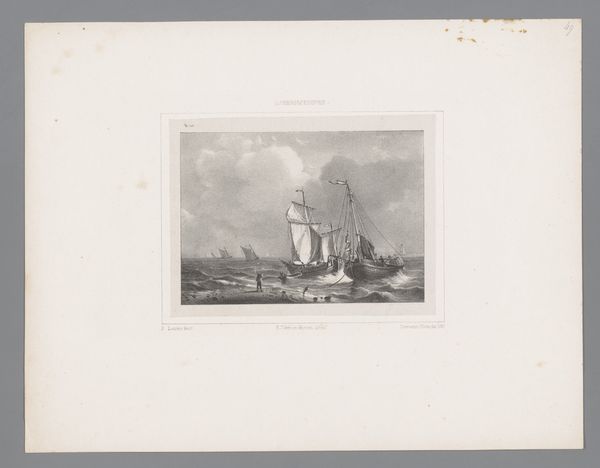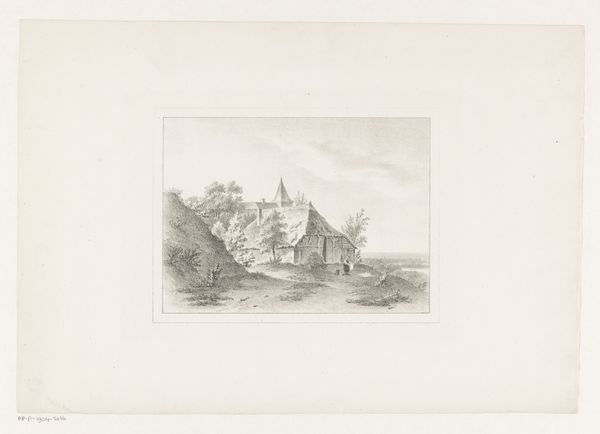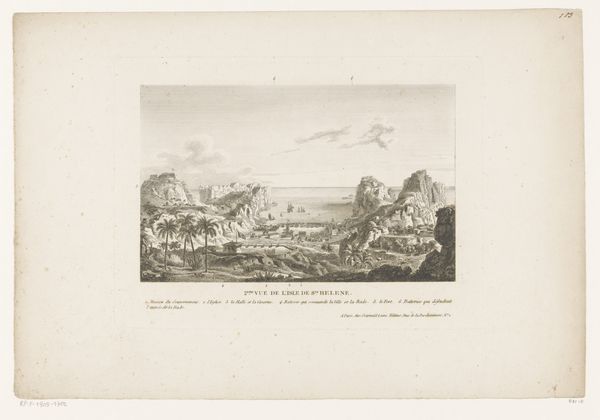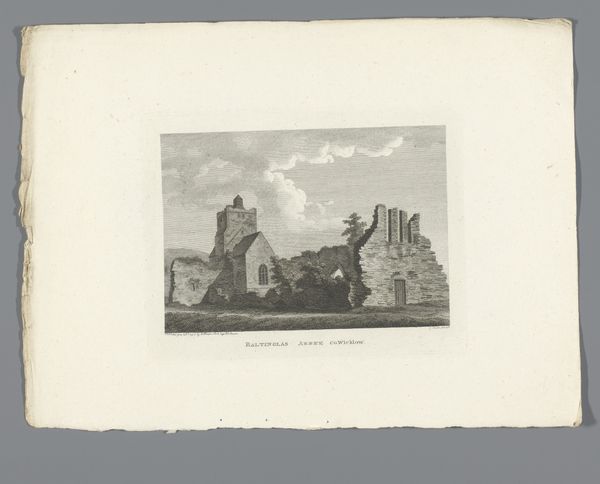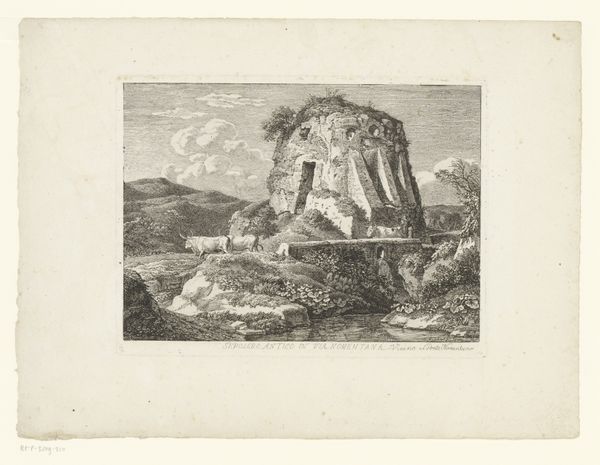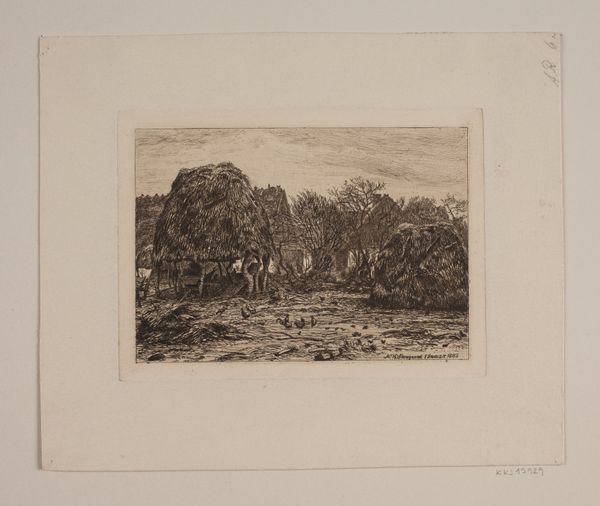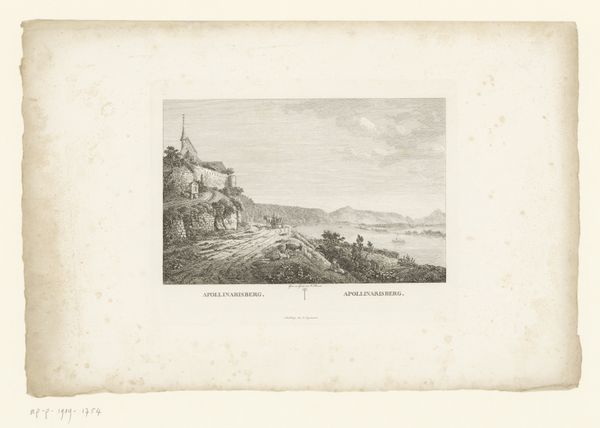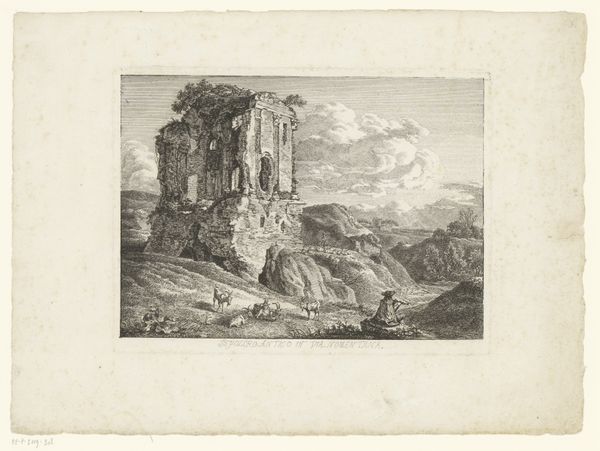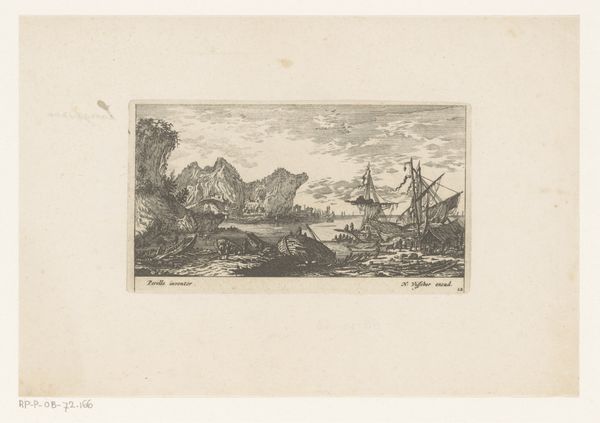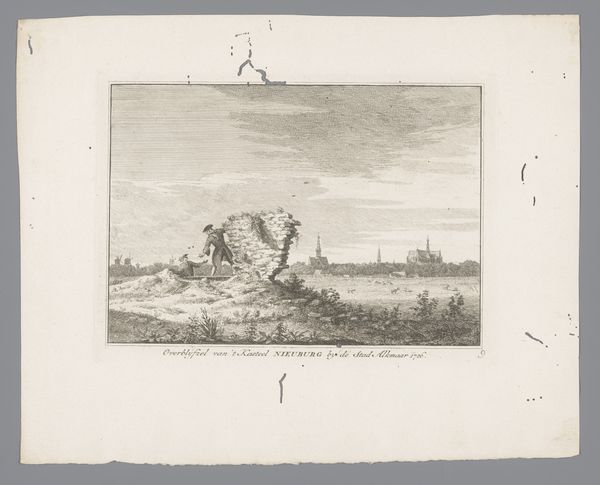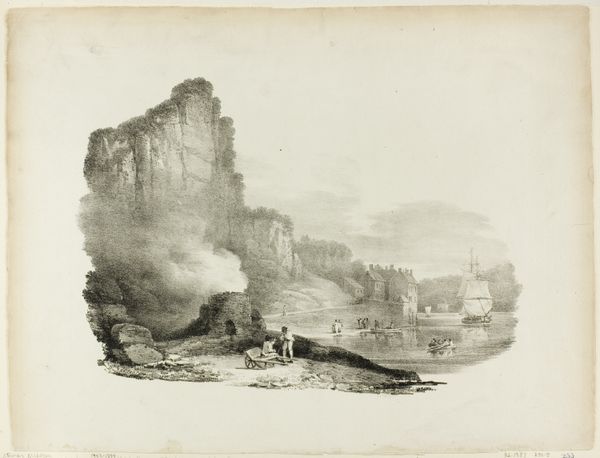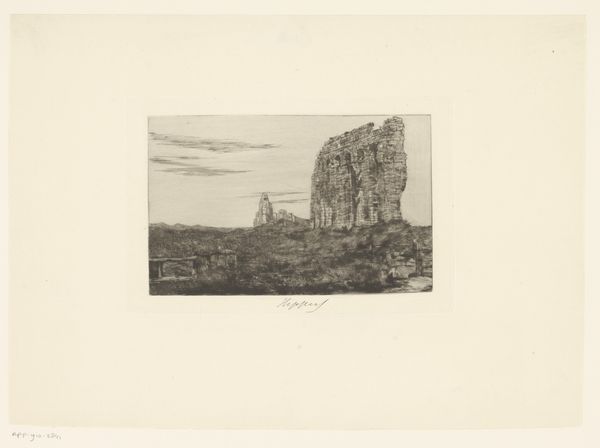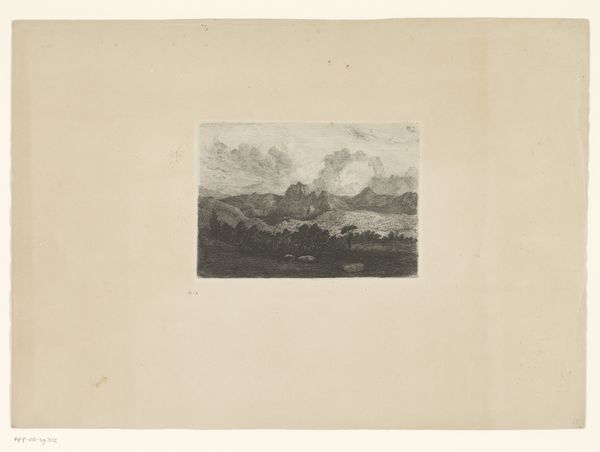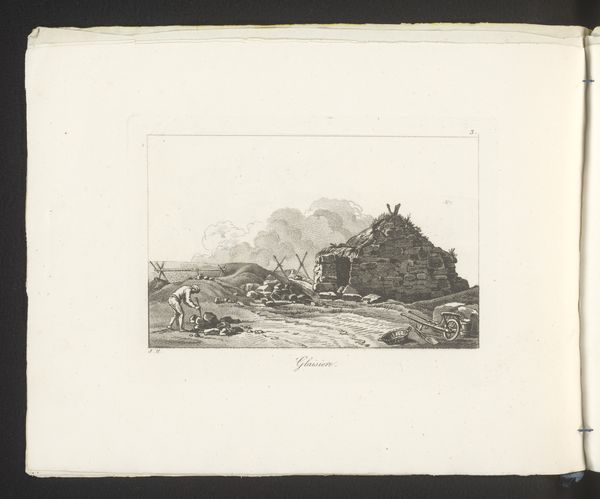
print, etching
# print
#
etching
#
landscape
#
romanticism
Dimensions: height 112 mm, width 155 mm
Copyright: Rijks Museum: Open Domain
Editor: Here we have Hermanus van Brussel’s etching from after 1815, “View of the Ruins of Brederode Castle.” The light and shadow really capture the mood—almost ghostly. It makes me wonder what happened here. What catches your eye in this piece? Curator: Well, for me, it's the feeling that whispers from the crumbling stones. Doesn't it strike you as though time itself is sighing? Van Brussel isn't just showing us a ruin; he's conjuring the very essence of Romanticism. Do you notice how the livestock graze so peacefully at the ruin’s base, unbothered by the ghosts of history? Editor: Absolutely! It’s like life and decay coexisting. Was this a common subject in art at the time? Curator: Ruins were all the rage. They spoke of mortality, the fleeting nature of empires, the inevitable return of everything to the earth. Think about it: Europe had been through wars and revolutions, everything felt unsteady. Artists found resonance in these melancholic landscapes, like visual poems about loss and resilience. You can almost smell the damp stone and the earth. It’s the circle of life! Do you feel that too? Editor: I do, especially now that you’ve pointed it out. I originally focused on the ghostly feel of it, but there is a whole sense of vitality as well. Curator: Exactly! It's a balance, isn't it? Shadow and light, decay and life, the past informing the present. Van Brussel really nailed the complexity of it all. And it’s funny - sometimes I feel like I, myself, am a ruin! Full of knowledge but prone to crumble a bit. Editor: Ha! Well, this definitely gives me a new perspective on ruins… and on us. Curator: And that, my friend, is what makes art endlessly fascinating. There's always another layer, another story waiting to be uncovered, isn't it?
Comments
No comments
Be the first to comment and join the conversation on the ultimate creative platform.
